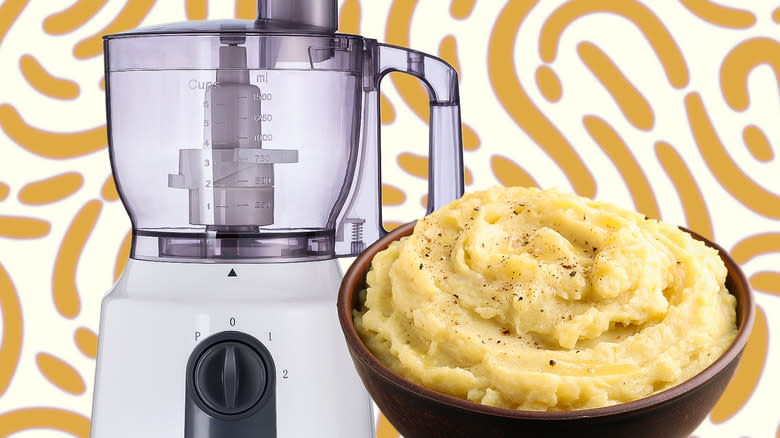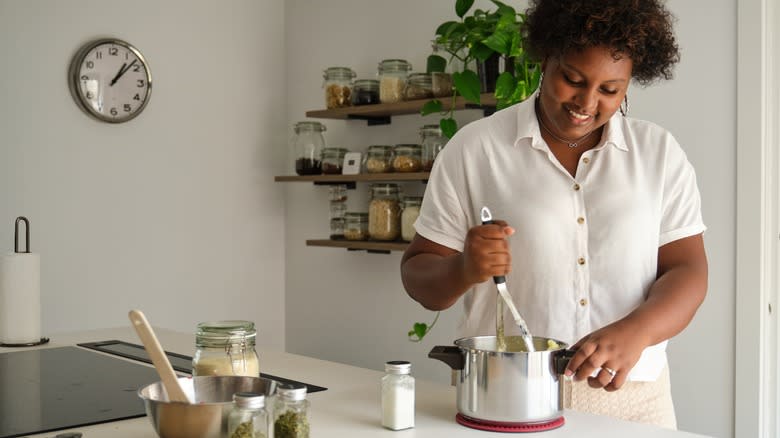Why It's A Mistake To Use A Food Processor When Making Mashed Potatoes

Mashed potatoes are a comfort food favorite for many people, but there's no denying they can be a little labor-intensive to make from scratch. All that hand-mashing can leave you exhausted and with a sore arm. Many likely consider tossing the boiled potatoes in a food processor or blender to save time and effort -- but clever cooks know this is a recipe for disaster.
It all comes down to the desired texture of your mashed spuds. Using a food processor or other mechanical means to mash your potatoes is far more likely to result in a gluey, stiff, unpleasant batch. This is due to the structure of the potato; when they're broken down finely, they release high amounts of starch. The more they're worked, the more starch is released, which causes them to clump together in a pasty, elastic mess. As you might expect, food processors and blenders break down the potato about as finely as possible, releasing significantly more starch than when hand-mashing.
Read more: The Most Useless Cooking Utensils, According To Chefs
Alternatives For Better Mashed Potatoes

If you've experienced this unpleasant result in the past, you're not alone. Overworking potatoes is among the most common mistakes everyone makes when cooking potatoes. However, unlike others like overly watery mashed potatoes, it's not an easy fix. Your best bet may be to make a new, smaller batch of fluffier mashed potatoes to mix with the gluey ones.
Those who want to avoid overworking their cooked potatoes but still want them broken down mechanically can use a potato ricer or food mill instead, releasing less starch. And if you're looking for the creamiest possible results, you've likely been mashing your potatoes all wrong. This is achieved with a stand mixer and paddle or whisk attachment, which creates ultra-fluffy, richly creamy mashed potatoes without releasing excess starch.
This focus on excess starch may be a bit confusing for cooks familiar with some of the best mashed potato secrets. They've likely heard that high-starch potato varieties like russets are the best choice for the dish. This remains the case. Nevertheless, it's vital to ensure that starch isn't released in too high amounts, like when using a food processor. By avoiding this simple pitfall, you may be amazed at the improved quality of this classic homestyle side.
Read the original article on Mashed.

